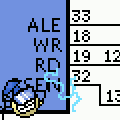|
False Toaster posted:What's the general consensus of bootcamps and job placement? Was thinking of signing up for Hack Reactor. Already have a technical background with 4-5 years of IT engineering experience. I don't know Hack Reactor specifically but I hire people out of boot camps fairly regularly. Its really easy to tell when people coast through them or cheat off their buddy so make sure to take it seriously. I think in general they are pretty good, they are probably best for people who have some poo poo figured out already, so if you're already into your career it might be a better fit than university anyway.
|
|
|
|

|
| # ? Jun 9, 2024 12:10 |
|
I know multiple people who have gone through Hack Reactor. Most bootcamp people I know who get hired have come from there, although for many it took them a while before actually landing a job coming from zero software experience prior. If anything, you end up with a good network that you can reach out to. If I went through Hack Reactor, I'd definitely cold contact other Hack Reactor grads on LinkedIn to see if they'd be willing to give a referral. Bruegels Fuckbooks posted:Hack Reactor essentially filters for people who already have the necessary skills/background to get a mid-level dev job and should probably just apply already. It's not surprising Hack Reactor graduates generally get jobs - it's debatable whether they needed the program to do so. I agree with this, too. If you already have a technical background then you're already set to make your own portfolio of github projects and start studying for the technical interview.
|
|
|
|
Fender posted:Should I (a fresh boot camp grad) do a job interview (working for my State) that is asking for 8 years of experience? I applied just because the boot camp employment assistant folks kept hammering home to ignore job requirements and apply for everything. Well, now the chickens have come home to roost and I think I'm in for an embarrassing video chat. Do it anyway just for practice? Fresh out of my boot camp I was put into the same situation. Told to go to an interview for a company that required five years of experience and a degree in CS or a related programming field. I had no experience and no degree at all, much less in CS. I got the job. I much later realized what happened: the CFO opened a job req, and the HR person making the job posting went around to people's desks and asked what they thought the positions requirements should be. Because one person said "five years experience", that went on the list. This HR rep was honestly pretty good at their job, it's just the company hires sales people, analysts, mathematicians, designers, etc. It's a big team. There's just no way they know what should actually go on the posting for all those jobs. I do know that at least one person on the team was strongly against my hiring, citing lack of experience. He's likely the one who made that requirement. The rest of the team thought I was fine. While not relevant but a fun aside, I outlasted the lone dissenter, who was fired for being incompetent.
|
|
|
|
Vincent Valentine posted:While not relevant but a fun aside, I outlasted the lone dissenter, who was fired for being incompetent.
|
|
|
|
There's a strong overlap between people who are blindly rabid to the idea of experience minimums and are really bad at their own job.
|
|
|
|
I am a hiring manager, and I have both entry-level (fresh out of school) and senior positions open. These are positions for embedded systems development, so it varies a bit from all of the webdev discussion in the thread. I am the person that reviews every single submitted resume. HR does not. For the entry-level positions, we're usually looking for a BS in computer science or computer engineering, but anything related (electrical engineering, software engineering, etc.) is fine as long at they have the skills they need. Solid C/C++ know-how is the bare minimum, and having any sort of hobby/school project using a Raspberry Pi, Arduino, etc. is a good indicator that you have an aptitude for this sort of work. Using a sample set of about 200 resumes collected in the last month, this is what I'm seeing: 1. Roughly half of the applicants are immediately flagged as "disqualified" by the applicant tracking system because they require H-1B sponsorship. I still review these applications just in case. Approximately 10% of these discards (~10) would merit an initial screening if the applicant was local and did not require sponsorship. The rest are incomprehensible garbage, completely unrelated to the position, offers from companies to develop smartphone apps for us, offers from companies to develop PCBs for us, or other crazy things. None of these people are tagged for an initial screening interview. 2. Roughly 40% of the remaining applicants (~40) have listed no internships, no previous jobs, no extracurriculars, and no projects (class projects or otherwise) on their resumes. I ignore these, as all these resumes tell me is "I went to school". Some of these applications even have a very unrelated degree (architecture, history, marketing, etc.). I assume that they were submitted by bots, or are otherwise part of some shotgun resume spamming effort. None of these people are tagged for an initial screening interview. 3. Roughly 50% of the remaining applicants (~30) have no internships or previous jobs, but do list some trivial class projects without any links to a github account or website that provides source code for me to review. I'll give each of these applicants about 10-15 minutes of my time to Google around and look for his/her LinkedIn profile, github account, or website to see if I'm missing anything. Of these applicants, additional searching has uncovered information that was not on their resumes that has led to four of them being tagged for an initial screening interview. 4. Of the remaining 30 applicants (~15% of the total applicants), I see lots of good stuff. Previous internships doing coding. A github account with products that show good code. Hobby projects with single-board computers and microcontrollers doing something non-trivial. All of these people are tagged for an initial screening interview. So, at this point I have about 35 people (~17% of all applicants) going through an initial screen. This process involves two video interviews: one with HR and one with me. HR is very good at doing this and collects some basic information on the applicant's background and experience to give me some context. HR also warns me if someone is "challenging" to talk to. This involves people that are really pushy, rude, condescending, or just downright mean to HR. In short, if you are a jerk to HR, I kick you out of the process at this point and you will never even speak to me. If you can't be professional enough to be courteous to someone helping you get a job, I can just imagine how difficult it would be to manage you. Our HR is super nice and responsive to candidates, too, and has gotten consistently high feedback to that effect. Why give HR grief? Eliminating the jerks (and there have been 3 or 4) and those that just flat-out admit to HR that their skills are really weak (surprisingly, about 10 of them), give me the candidates that talk with me. I have screened 22 people in the past month, or roughly 10% of the month's applicants. This takes about 30 minutes of my time for each screen, though some go as long as an hour. These screens are "softer" skill screens that are there to feel out the depth and breadth of your knowledge and aptitude/interest in doing embedded work. It also tests how well you can communicate and whether you are a used car salesman that talks a good game but who can't back it up. I feel that I should clarify something here: I have realistic expectations for the skills of someone coming fresh out of school. I'm not asking trivia questions for esoteric CS stuff. I'm not asking someone to rank the big O timings of search algorithms. I'm not asking brain teasers or puzzle questions. I'm asking about their projects, code in github, and experiences developing code (stuff like the compilers and debuggers they've used, if their school program gave them a chance to breadboard circuits or use a JTAG... stuff like that). This has led to six candidates going to the next round of interviews. The next round is a series of three back-to-back 30-minute video interviews with team leads and engineers. I have not hired any of the six that have reached this point. However, one had a good attitude and was well-suited for an open position in another department. I passed his resume over there, recommended that they speak with him, and he received an offer that he accepted. I'll continue to review and screen candidates. It is an ongoing process that takes a lot of time and effort. But, the wrong hire can cost me far more time in the long-run. I give people the benefit of the doubt if they give me something to work with on their resumes. Show me projects! Show me github repos! Show me something.
|
|
|
|
Out of curiosity, what’s your team diversity look like?
|
|
|
|
fourwood posted:Out of curiosity, what’s your team diversity look like?
|
|
|
|
hendersa posted:I am a hiring manager, and I have both entry-level (fresh out of school) and senior positions open. These are positions for embedded systems development, so it varies a bit from all of the webdev discussion in the thread. I am the person that reviews every single submitted resume. HR does not. For the entry-level positions, we're usually looking for a BS in computer science or computer engineering, but anything related (electrical engineering, software engineering, etc.) is fine as long at they have the skills they need. Solid C/C++ know-how is the bare minimum, and having any sort of hobby/school project using a Raspberry Pi, Arduino, etc. is a good indicator that you have an aptitude for this sort of work. Using a sample set of about 200 resumes collected in the last month, this is what I'm seeing: If you're going to be this picky about hiring right out of school you deserve 0 candidates even if it's by your own making. If you're comfortable with that, it's your business but I assume by posting about it in this thread you're not super happy. Doesn't matter if you're hiring for embedded or web dev. Juniors are an investment. Hiring almost exclusively for aptitude will get you an extremely limited, homogeneous pool of candidates that might already have a sense for what they're worth and unless your comp is very competitive you'll be out of luck. Better to hire for attitude first. Look for candidates who are enthusiastic, have a visible interest in learning and developing, and get along with the other engineers they interview with. Obviously there should be a minimum set of skills but prior work on GitHub and anything beyond the basic coursework for a CS degree (and I'd argue not even that because it seriously reduces the diversity of your hiring pool) is asking a LOT from new grads or folks with 1 year or experience.
|
|
|
|
hendersa posted:There's a little diversity, but not enough. Our applicants are largely from the local market and universities, which just doesn't have a very diverse pool of candidates when it comes to professionals and students in the CS/EE fields. In a city of ~140k people that isn't one of the major job markets, well... you're pretty limited as to who applies for entry-level positions. Our office is small enough (~400 people, I think) to be overlooked by people performing a job search on a national scale, but we're actually part of a public multi-national that trades on the Swiss stock exchange.
|
|
|
|
If you post a job ad that says you require a BS and project work, you'll get a lot of resumes that show neither.
|
|
|
|
Blinkz0rz posted:If you're going to be this picky about hiring right out of school you deserve 0 candidates even if it's by your own making. If you're comfortable with that, it's your business but I assume by posting about it in this thread you're not super happy. He's not picky. You hire for skills and potential (which require people to show something). You can't build potential. If someone cannot be assed to but a couple projects into github after spending years on a CS degree or trying to change careers they are not going to be good. If you think putting some things into Github is too much work for a $80k+ job I am not sure what to tell you. That is absolutely bare minimum here. I know lots of people who had good attitudes and lots of enthusiasm but were dogshit at their job and made their coworkers pick up their slack. That is a bad deal for everyone.
|
|
|
|
I know this is the newbie thread and this doesn’t apply directly to the target audience, but putting too much attention on side projects can lead to selecting for privilege
|
|
|
|
hendersa posted:Eliminating the jerks (and there have been 3 or 4) and those that just flat-out admit to HR that their skills are really weak (surprisingly, about 10 of them), give me the candidates that talk with me. I'd be real, real interested to hear more about this. One of my persistent challenges with junior devs, and particularly junior devs from non-stereotypical backgrounds, is getting them to recognize the value of their own skills. What are the demographics of the people you reject at this stage? How do they compare to the demographics of the people who make it through?
|
|
|
|
Lockback posted:If someone cannot be assed to but a couple projects into github after spending years on a CS degree or trying to change careers they are not going to be good. This specifically is horse poo poo
|
|
|
|
Jose Valasquez posted:This specifically is horse poo poo Why? You don't think someone trying to find a entry-level developer job should be able to write an application that can be presented and talked about? It doesn't need to be commercial grade but if you can't figure out how to write an interactive JS page you probably won't make it as a JS developer. If you want to be a python developer knowing how to put together a non-trivial flask application is going to be a pretty basic thing. This isn't really that high of a bar. And going over projects is far superior to coding challenges as a way of selecting candidates. The Fool posted:I know this is the newbie thread and this doesn’t apply directly to the target audience, but putting too much attention on side projects can lead to selecting for privilege Far less than focusing on education or experience. The barrier to putting together basic projects is really, really low.
|
|
|
|
I apologize if I got anyone's feathers ruffled by posting. My intent was to give another data point to the newbies reading the thread by giving some concrete details on how the filtering process works during hiring at my particular org. Some insight into the opaque evaluation process going on behind the scenes. Because the number of people applying greatly outpaces the ability for our org to evaluate every candidate, these heuristics are in place to filter candidates. If I had adequate resources to screen every candidate that met the minimum requirements, I would. In fact, I did this for quite a while. I wasn't going to let a good hire slip through the cracks, so I began working very long hours doing screening, interviews, and also my regular workload. It just isn't maintainable over time. Newbies, if you have been passed over for an opportunity because of one of these filters in the companies that you've applied to, I apologize. Please realize that there may be other factors at play that the hiring manager has no control over. I'd give you all your shot at an interview, if I had the resources to do so. Space Gopher posted:I'd be real, real interested to hear more about this. One of my persistent challenges with junior devs, and particularly junior devs from non-stereotypical backgrounds, is getting them to recognize the value of their own skills. In the first case, feedback from HR is that the candidates thought they had the right to write their own ticket. In the second, feedback is that the candidate applied to a bunch of jobs without looking too closely at what each one required.
|
|
|
|
Lockback posted:Why? You don't think someone trying to find a entry-level developer job should be able to write an application that can be presented and talked about? It doesn't need to be commercial grade but if you can't figure out how to write an interactive JS page you probably won't make it as a JS developer. If you want to be a python developer knowing how to put together a non-trivial flask application is going to be a pretty basic thing. This isn't really that high of a bar. Marketing yourself is a different skill than programming. My objection is to your claim that people who aren't good at marketing themselves aren't going to be good developers. quote:And going over projects is far superior to coding challenges as a way of selecting candidates.
|
|
|
|
this is really just an extension of people wanting to hire proven, competent developers at entry-level prices
|
|
|
|
Jose Valasquez posted:
This is a newbie thread, people who are newbies trying to get into the industry should: 1. Be looking for advice from actual hiring managers like myself and hendersa to figure out why they may be getting passed over and 2. Be willing to spend some time to get themselves in an attractive position. If you have a good developer job, this advice is not going to apply to you. If you're trying to figure out how to get a good developer job, take the time to figure out how to show people your skills. I know people are frequently not taught to do those things. That's why I am telling them now to do it. Fellatio del Toro posted:this is really just an extension of people wanting to hire proven, competent developers at entry-level prices Not really. A flask page that has a media player functionality isn't really a sign of being proven or experienced but is a perfectly good project for a entry level person to use for an associate role. What you don't want to do is hire someone who coasted through school or a bootcamp. You can't make a good hire unless you can verify those skills and abilities. There's not many jobs that can offer salaries of $60k-$90k to someone with very little experience in their early 20s. There is tremendous competition for these jobs, and (as hendersa put it) you need to be selective as a hiring manager looking through dozens or hundreds of resumes for 1-2 roles. Being less selective doesn't mean you hire more people, it just means you make bad hires. This is an advice thread for newbies. This is very good advice for new people, even if its unfair or whatever.
|
|
|
|
If a hiring manager gets 200 resumes for a job and they only have time to interview 20 people, how should they filter? There are using issues with using projects as has been discussed, but everything else I can think of is worse.
|
|
|
|
two things can be true: 1. this thread is here to help newbies figure out how to make it through lovely modern hiring practices 2. the people who implement said practices should be criticized
|
|
|
|
I agree that having a portfolio will help your chances of getting a job. I disagree that not having a portfolio is a sign you are a bad developer and I think that it is lovely for the entire industry that hiring managers think this way. Somehow other high paying professions get by without having "does it for free in your spare time" as a requirement to get hired, but our industry hasn't figured it out.
|
|
|
|
ultrafilter posted:If a hiring manager gets 200 resumes for a job and they only have time to interview 20 people, how should they filter? There are using issues with using projects as has been discussed, but everything else I can think of is worse. lots of very smart people have tried to solve this question and the best they could come up with was an AI that could detect the resumes of women and throw them in the trash
|
|
|
|
Jose Valasquez posted:I agree that having a portfolio will help your chances of getting a job. I disagree that not having a portfolio is a sign you are a bad developer and I think that it is lovely for the entire industry that hiring managers think this way. ultrafilter posted:If a hiring manager gets 200 resumes for a job and they only have time to interview 20 people, how should they filter?
|
|
|
|
I don't know, this is the only industry I've worked in, how does it work in every other industry? Do aerospace engineers have to build airplanes in their spare time? What do those hiring managers do?
|
|
|
|
In a lot of other professions, there are specific degrees, credentials and professional society memberships that you need to either get into the career or stay in it past a certain point. I don't think we want that for software, and I also don't think it's a good fit for most positions. I don't know about aerospace engineering specifically but my guess is that's one where you really need to have a degree in one of a very few subjects.
|
|
|
|
ultrafilter posted:If a hiring manager gets 200 resumes for a job and they only have time to interview 20 people, how should they filter? There are using issues with using projects as has been discussed, but everything else I can think of is worse. The moral high ground is probably that you shouldn't filter anyone. It would be difficult to convince management that this is an efficient use of resources. Filtering by some subset of academic degrees is generally considered fair, though outliers from non-traditional backgrounds will argue it unfairly eliminates people. I've seen orgs filter by a subset of universities and/or GPA. I don't much agree with those. I don't even see a GPA listed on many resumes I receive, and it doesn't worry me. Some have some inherent filter criteria (like, say having a certain citizenship for a security clearance). If you are using an automated applicant tracking system to do the filtering task, you're passing the buck to the software. Beyond that, though, it comes down to what upper management and the hiring manager select as important criteria. Some of these are regular boolean yes/no questions. Does the candidate have XYZ on his/her resume? If no, discard. Some are more "fuzzy". Things like "does this candidate look like a hard worker?", which you might get from a combination of internships, working a job while in school, GPA, etc. Really, the best discussion for something like this is to lay out what you think is fair for a filter and explain why. Then someone else can poke at it and provide some perspective while offering an alternative that accomplishes some subset of what you suggest, but in a different way that is more fair. And so on. Fellatio del Toro posted:2. the people who implement said practices should be criticized
|
|
|
|
Jose Valasquez posted:I don't know, this is the only industry I've worked in, how does it work in every other industry? You pass an exam and are licensed by your state. You also get to call yourself an Engineer. Would you like that to be the same for this industry? Fellatio del Toro posted:two things can be true: Only one of those two is appropriate for the 'Newbie Programming Interviews/Get a Job Megathread' I'd think.
|
|
|
|
hendersa posted:2. Roughly 40% of the remaining applicants (~40) have listed no internships, no previous jobs, no extracurriculars, and no projects (class projects or otherwise) on their resumes. I ignore these, as all these resumes tell me is "I went to school". Some of these applications even have a very unrelated degree (architecture, history, marketing, etc.). I assume that they were submitted by bots, or are otherwise part of some shotgun resume spamming effort. None of these people are tagged for an initial screening interview. I think taking a random sampling of the 100 people you have at this point would reduce the level of bias in the hiring process, or even go ahead and eliminate people with a very unrelated degree and nothing else that indicates they are self-taught to reduce it a bit more. If there is a specific skill they need to do the job that can't be learned then fine, filter for that too although I'd argue at that point you aren't looking for an entry level developer. If that's still too much then maybe save 25% of the room you've got for the initial screening for a random selection of people so you don't miss out on what you consider to be the best of the best.
|
|
|
|
Hughlander posted:You pass an exam and are licensed by your state. You also get to call yourself an Engineer. Would you like that to be the same for this industry? I don't know, sounds preferable to having to live and breathe programming to get an entry level position with a CS degree  In college I had a lot of engineering friends, and they complained about having to take the FE exam but it wasn't that big of a deal.
|
|
|
|
Hughlander posted:You pass an exam and are licensed by your state. You also get to call yourself an Engineer. Would you like that to be the same for this industry? The flip side is that most other industries require your GPA, maybe a recommendation or two, and maybe a writing sample depending on the industry and job in order to get to the interview phase. Tech is extremely selective for two reasons: 1. It's an industry that can pay a lot so plenty of folks fudge qualifications to try to get on the gravy train 2. Tech folks self-style as intellectual superiors who love lording their technical accumen over anyone who happens to be captive in front of them Ask yourself which one of those 2 reasons is most frequently exercised during the interview process.
|
|
|
|
I agree that asking for projects with a degree is kind of a dick move, but it also strongly depends on the company. I think if you're self-taught, or a bootcamp grad, you definitely should have a github with projects on it. A CS degree should replace the need for those projects. A year of experience should also replace the need for those projects. That being said, we never had a hundred people apply for a position so our filtering doesn't need to be as rigorous. But that's always the catch, isn't it? A cover letter, projects, etc, none of that matters unless a statistically significant portion of applicants have them, then they matter a lot because if you don't have it, you're filtered out. And with that many applicants, well, there's going to be a statistically significant portion of people going that extra mile. quote:I assume that they were submitted by bots, or are otherwise part of some shotgun resume spamming effort. Not calling you out or anything, but what do you think fresh CS grads are doing if not shotgunning their resume? Aside from a very few exceptional graduates, I have to imagine almost all of them are shotgunning. Almost everyone doesn't have the luxury of being picky.
|
|
|
|
hendersa posted:This is the million dollar question, and probably a good one to discuss in the Oldie thread. You'll get a lot of very passionate debate on this one, depending on who you talk to. Added a post over there.
|
|
|
|
The discussion is relevant to this thread because employers that expect you to code in your free time are also likely to expect you to code for them in your "free" time. That's not to say this is the case for hendersa or Lockback specifically, but I do consider it to be a red flag.
|
|
|
|
Also consider that hiring managers have a vested interest in extracting the highest value labor for the least cost.
|
|
|
|
Hughlander posted:You pass an exam and are licensed by your state. You also get to call yourself an Engineer. Would you like that to be the same for this industry? This isn't common in aerospace and in general for engineering except maybe civil. The stats are something like 20% of engineers are licensed. Most engineers don't bother unless their job requires it and even then it's not right out of college. Maybe they've started the first exam, but I don't believe that is a general requirement for the first job even if the career path requires it.
|
|
|
|
Vincent Valentine posted:Not calling you out or anything, but what do you think fresh CS grads are doing if not shotgunning their resume? Aside from a very few exceptional graduates, I have to imagine almost all of them are shotgunning. Almost everyone doesn't have the luxury of being picky. hendersa posted:2. Roughly 40% of the remaining applicants (~40) have listed no internships, no previous jobs, no extracurriculars, and no projects (class projects or otherwise) on their resumes. I ignore these, as all these resumes tell me is "I went to school". Some of these applications even have a very unrelated degree (architecture, history, marketing, etc.). In short, for the newbies just graduating from school: Send your resume everywhere. Go nuts. But please make sure you've got something interesting on there aside from "I have a degree", if possible, so as to stand out from the crowd of other people sending out their "I have a degree" resumes anywhere and everywhere.
|
|
|
|
I'm convinced that half my callbacks are from mentioning at the very bottom "discovered bronze age cemetery in mongolia". Gonna start refusing to explain it until round 2 of interviews.
|
|
|
|

|
| # ? Jun 9, 2024 12:10 |
|
Guildenstern Mother posted:I'm convinced that half my callbacks are from mentioning at the very bottom "discovered bronze age cemetery in mongolia". Gonna start refusing to explain it until round 2 of interviews. Not even seeing the resume, I know it would be for me. Someone recently passed my resume check from the first line of theirs... "Directly or indirectly responsible for 4 Guinness Book of World Records, Gaming Edition."
|
|
|

























